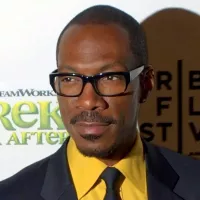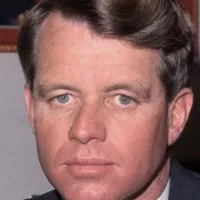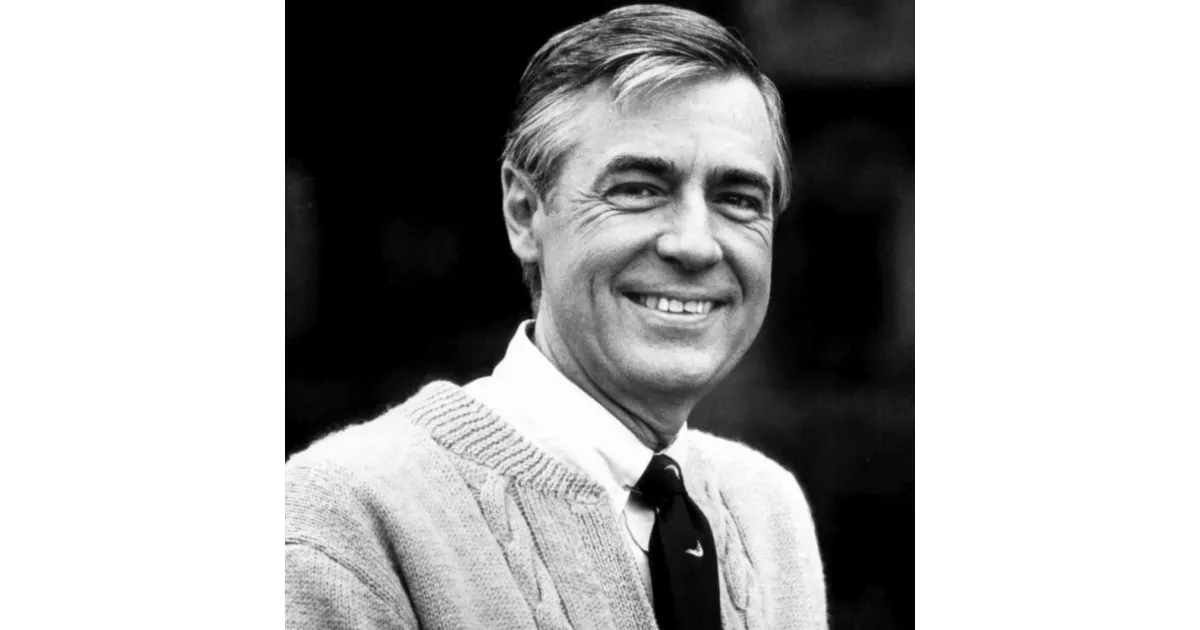Fred Rogers, known as Mister Rogers, was an influential American television personality, author, producer, and Presbyterian minister. He is best recognized as the creator and host of Mister Rogers' Neighborhood, a long-running preschool television program that aired from 1968 to 2001. Rogers dedicated his career to educating and nurturing children, addressing important social and emotional issues with compassion and understanding. His gentle demeanor and direct communication style resonated with generations of viewers, making him a beloved figure in American culture and a champion for kindness and empathy.
March 20, 1928: Fred Rogers Born
On March 20, 1928, Fred McFeely Rogers, later known as Mister Rogers, was born. He would become an influential American television host, author, producer, and Presbyterian minister.
1928: Fred McFeely Rogers Born
Fred McFeely Rogers was born in 1928.
1948: Draft Registration
In 1948, at the age of 20, Fred Rogers registered for the draft in Greensburg, Pennsylvania and was initially classified as 1-A.
October 12, 1950: Declared unqualified for military service
On October 12, 1950, Fred Rogers' status was changed to unqualified for military service following an Armed Forces physical.
1951: Music Degree and Start at NBC
In 1951, Fred Rogers earned a bachelor's degree in music from Rollins College and began his television career at NBC in New York City.
1951: Graduation from Rollins College
In 1951, Fred Rogers graduated magna cum laude from Rollins College with a Bachelor of Music.
1951: Entering Television
In 1951, after graduating, Fred Rogers worked at NBC in New York City as floor director of Your Hit Parade, The Kate Smith Hour, and Gabby Hayes's children's show, and as an assistant producer of The Voice of Firestone.
1952: Marriage to Sara Joanne Byrd
In 1952, Fred Rogers married Sara Joanne Byrd, whom he met while attending Rollins College. They remained married until his death in 2003.
1953: Return to Pittsburgh and Work at WQED
In 1953, Fred Rogers returned to Pittsburgh to work as a program developer at public television station WQED.
1955: Development of The Children's Corner
In 1955, Fred Rogers helped develop the children's show The Children's Corner for WQED in Pittsburgh.
1955: Sylvania Award for The Children's Corner
In 1955, The Children's Corner won a Sylvania Award for best locally produced children's programming.
1962: Graduation from Pittsburgh Theological Seminary
In 1962, Fred Rogers graduated from Pittsburgh Theological Seminary with a bachelor's degree in divinity.
1963: Ordination as Presbyterian Minister
In 1963, Fred Rogers became a Presbyterian minister and also helped develop the children's show Misterogers in Canada for the Canadian Broadcasting Corporation.
1963: Misterogers on CBC
In 1963, Fred Rogers was contracted by the Canadian Broadcasting Corporation (CBC) to develop and host the 15-minute black-and-white children's program Misterogers in Toronto.
1964: Work on Butternut Square
From 1964 to 1967, Fred Rogers also worked with Ernie Coombs on the children's show Butternut Square.
1967: Return to Pittsburgh
In 1967, Fred Rogers acquired the rights to Misterogers and returned to Pittsburgh with his family and sets.
June 7, 1968: Special Segment on Robert F. Kennedy Assassination
On June 7, 1968, two days after the assassination occurred, Fred Rogers aired a special segment addressing the assassination of Robert F. Kennedy on Mister Rogers' Neighborhood.
1968: Mister Rogers' Neighborhood Debut
In 1968, Fred Rogers created, showran and hosted the preschool television series Mister Rogers' Neighborhood, which ran from 1968 to 2001.
1968: Creation of Mister Rogers' Neighborhood
In 1968, Fred Rogers returned to Pittsburgh and adapted the format of his Canadian series to create Mister Rogers' Neighborhood.
1969: Rogers Testifies Before Senate Subcommittee
In 1969, Fred Rogers testified before the U.S. Senate Subcommittee on Communications, advocating for continued funding for PBS. His emotional and persuasive arguments were televised and helped to secure funding for PBS. Congressional funding for PBS increased from $9 million to $22 million.
1969: Premiere of Sesame Street
In 1969, Sesame Street premiered, differing from Mister Rogers' Neighborhood by focusing on cognitive learning, while Mister Rogers focused on social and emotional needs.
1970: Became a Pescatarian
In 1970, Fred Rogers became a pescatarian after the death of his father.
1970: Nixon Appoints Rogers as Chair of White House Conference
In 1970, President Richard Nixon appointed Fred Rogers as chair of the White House Conference on Children and Youth, recognizing his influence and dedication to children's welfare.
1971: Formation of Family Communications, Inc.
In 1971, Fred Rogers formed Family Communications, Inc. (FCI, now Fred Rogers Productions) to produce the Neighborhood, other programs, and non-broadcast materials.
1973: Commemorative quilts
After 1973, two commemorative quilts, created by two of Rogers' friends and archived at the Fred Rogers Center at St. Vincent College in Latrobe, were made out of the academic hoods he received during the graduation ceremonies.
1975: Hiatus from Mister Rogers' Neighborhood
In 1975, Fred Rogers stopped producing Mr. Rogers' Neighborhood to focus on adult programming.
1976: Joanne Rogers Public Performances
From 1976 to 2008, Joanne Rogers performed publicly with her college classmate, Jeannine Morrison.
1978: Rogers Hosts 'Old Friends ... New Friends'
In 1978, Fred Rogers wrote, produced, and hosted a 30-minute interview program for adults on PBS called Old Friends ... New Friends, which lasted 20 episodes and featured interviews with notable figures.
1979: Continued Production of Mister Rogers' Neighborhood
Fred Rogers and FCI produced new episodes, approximately two to three weeks' worth each year, supplementing them with a library of about 300 shows made since 1979, leading up to his retirement in 2001.
1979: Return to Producing Mister Rogers' Neighborhood
In 1979, after an almost five-year hiatus, Fred Rogers returned to producing the Neighborhood.
1981: Jeff Erlanger appears on Mister Rogers' Neighborhood
In 1981, Jeff Erlanger, who at age 10, appeared on Mister Rogers' Neighborhood to explain his electric wheelchair. He also spoke at Rogers's memorial.
1982: Response to Parodies
In 1982, Rogers told David Letterman that he believed parodies of Mister Rogers' Neighborhood, such as Eddie Murphy's on Saturday Night Live, were done "with kindness in their hearts".
1984: NPR Interview
In 1984, Fred Rogers spoke with Terry Gross on NPR about his experiences in high school.
1985: Peak Ratings for Mister Rogers' Neighborhood
In 1985–1986, Mister Rogers' Neighborhood reached its peak in ratings, with 2.1% of television households, or 1.8 million homes, tuning in.
1986: Peak Ratings for Mister Rogers' Neighborhood
In 1985–1986, Mister Rogers' Neighborhood reached its peak in ratings, with 2.1% of television households, or 1.8 million homes, tuning in.
September 1987: Rogers Visits Moscow
In September 1987, Fred Rogers visited Moscow to appear as the first guest on the Soviet children's TV show Good Night, Little Ones! The appearance was broadcast on December 7, coinciding with the Washington Summit meeting.
March 1988: Vedeneyeva Visits Mister Rogers' Neighborhood
In March 1988, Tatyana Vedeneyeva, host of Good Night, Little Ones!, visit to the set of Mister Rogers' Neighborhood was taped and later aired as part of Rogers' program.
1994: Rogers Hosts 'Fred Rogers' Heroes'
In 1994, Fred Rogers wrote, produced, and hosted a special for PBS called Fred Rogers' Heroes, which featured interviews with people positively impacting children and education.
1996: Rogers Appears on 'Dr. Quinn, Medicine Woman'
In 1996, Fred Rogers appeared on television as an actor for the first time, playing a preacher in an episode of Dr. Quinn, Medicine Woman.
1996: End of Mr. Dressup
In 1996, Mr. Dressup, created by Ernie Coombs, Fred Rogers' Canadian equivalent, ended after running from 1967.
1997: Lifetime Achievement Emmy
In 1997, Fred Rogers received a Lifetime Achievement Emmy for his contributions to children's television.
1998: Esquire Profile Published
In 1998, Tom Junod's Esquire profile of Fred Rogers, "Can You Say... Hero?", was published. According to Junod, Rogers saw his weight of 143 pounds "as a destiny fulfilled", telling Junod, "the number 143 means 'I love you.'
1999: Induction into the Television Hall of Fame
In 1999, Fred Rogers was inducted into the Television Hall of Fame.
December 2000: End of Production for Mister Rogers' Neighborhood
In December 2000, production ended for Mister Rogers' Neighborhood.
August 31, 2001: Final Original Episode of Mister Rogers' Neighborhood
On August 31, 2001, the final original episode of Mister Rogers' Neighborhood aired.
2001: Retirement of Fred Rogers
After Fred Rogers' retirement in 2001, he remained busy working with FCI, studying religion and spirituality, making public appearances, traveling, and working on a children's media center named after him.
2001: End of Mister Rogers' Neighborhood
In 2001, Mister Rogers' Neighborhood came to an end after being on air since 1968.
2001: Turbulent Times
In 2001, Robert Thompson of Syracuse University noted Fred Rogers helped guide Americans through turbulent times including the 9/11 attacks; also in 2001 production ended on Mister Rogers' Neighborhood.
2001: Last Original Episode of Mister Rogers' Neighborhood
In 2001, the last original episode of Mister Rogers' Neighborhood aired, although reruns continued to be broadcast.
October 2002: Diagnosis of Stomach Cancer
In October 2002, Fred Rogers was diagnosed with stomach cancer after experiencing severe stomach pain.
2002: Presidential Medal of Freedom
In 2002, Fred Rogers was awarded the Presidential Medal of Freedom.
2002: Final Commencement Speech at Dartmouth College
In 2002, Rogers delivered his final commencement speech at Dartmouth College. During his speech, he instructed his audience to remain silent and think for a moment about someone who had a good influence on them.
February 27, 2003: Death of Fred Rogers
On February 27, 2003, Fred Rogers, better known as Mister Rogers, passed away, leaving behind a significant legacy in children's television.
March 1, 2003: Private Funeral Held
On March 1, 2003, a private funeral was held for Fred Rogers in Unity Chapel at Unity Cemetery in Latrobe. About 80 relatives, co-workers, and close friends attended the service.
May 3, 2003: Public Memorial Held at Heinz Hall
On May 3, 2003, a public memorial was held at Heinz Hall in Pittsburgh for Fred Rogers, attended by 2,700 people, including notable figures like Itzhak Perlman and Yo-Yo Ma.
2003: Death
Following Fred Rogers' death in 2003, Asia Simone Burns of National Public Radio noted Rogers became "a source of comfort, sometimes in the wake of tragedy".
2003: Death of Fred Rogers
Fred Rogers died in 2003
2005: Miniature Railroad and Village
In 2005, the Carnegie Science Center's Miniature Railroad and Village debuted a miniature recreation of Rogers' house from Mister Rogers' Neighborhood.
2006: The Fred Rogers Company Contacts Santomero
In 2006, three years after Rogers' death, the Fred Rogers Company contacted Angela Santomero to create a show that would promote Rogers' legacy.
2008: Joanne Rogers Public Performances end
From 1976 to 2008, Joanne Rogers performed publicly with her college classmate, Jeannine Morrison.
2012: Sandy Hook Elementary School shooting
Following the Sandy Hook Elementary School shooting in 2012, Rogers' words of comfort "began circulating on social media".
2012: Premiere of 'Daniel Tiger's Neighborhood'
In 2012, Daniel Tiger's Neighborhood, featuring characters from and based upon Mister Rogers' Neighborhood, premiered on PBS.
2012: Resurgence of Rogers' Testimony
In 2012, video of Rogers' 1969 testimony resurfaced after then presidential candidate Mitt Romney suggested cutting funding for PBS.
March 4, 2014: Historical Marker Approved
On March 4, 2014, a roadside Pennsylvania Historical Marker dedicated to Fred Rogers to be installed in Latrobe was approved by the Pennsylvania Historical and Museum Commission.
2014: Fredasaurus Rex Friday XIII statue
As of 2014, a dinosaur statue titled "Fredasaurus Rex Friday XIII" stood in front of the building containing the Fred Rogers Company offices.
2014: Long's Essay on Rogers' Sexuality
In 2014, Michael Long noted in his HuffPost essay that Rogers' sexuality had long been a topic of curiosity due to his lack of traditional machismo.
June 11, 2016: Historical Marker Installed
On June 11, 2016, the Pennsylvania Historical Marker dedicated to Fred Rogers was installed in Latrobe, with the title "Fred McFeely Rogers (1928–2003)".
2016: Longest-Running Program in PBS History
By 2016, Mister Rogers' Neighborhood was the third-longest-running program in PBS history.
2017: Manchester Arena bombing
Following the Manchester Arena bombing in Manchester, England, in 2017, Rogers' words of comfort "began circulating on social media".
2017: Rogers' Testimony Goes Viral Again
In 2017, video of Rogers' 1969 testimony again went viral after President Donald Trump proposed defunding several arts-related government programs including PBS and the National Endowment for the Arts.
2018: Stoneman Douglas High School shooting
Following the Stoneman Douglas High School shooting in Parkland, Florida, in 2018, Rogers' words of comfort "began circulating on social media".
2018: Release of Documentary 'Won't You Be My Neighbor?'
In 2018, the documentary Won't You Be My Neighbor? briefly addresses the subject of Rogers' sexuality, including an interview with François Clemmons.
2018: Publication of 'The Good Neighbor'
In the 2018 biography The Good Neighbor: The Life and Work of Fred Rogers, Rogers recounts telling openly gay friend Dr. William Hirsch that he "must be right smack in the middle" of a one-to-ten sexuality scale, because "I have found women attractive, and I have found men attractive."
2019: A Beautiful Day in the Neighborhood Film
In 2019, the film A Beautiful Day in the Neighborhood, in which Tom Hanks portrays Fred Rogers, was released.
2019: Release of 'A Beautiful Day in the Neighborhood'
The 2019 drama film A Beautiful Day in the Neighborhood tells the story of Rogers and his television series, with Tom Hanks portraying Rogers.
2021: A Beautiful Day in the Neighborhood statue dedication
In 2021, A Beautiful Day in the Neighborhood—a seven-foot (2.1 m) tall, 3,000-pound (1,400 kg) bronze statue by Paul Day—was dedicated at Rollins College. The memorial depicts Rogers and Daniel Tiger speaking with a group of children and features lyrics from Mister Rogers' Neighborhood's theme on the base.
Mentioned in this timeline

The White House located at Pennsylvania Avenue NW in Washington...
Saturday Night Live SNL is a late-night live sketch comedy...

Eddie Murphy is a highly acclaimed American actor comedian and...

Tom Hanks is a highly acclaimed and popular American actor...
Pennsylvania is a U S state located in the Mid-Atlantic...

Robert F Kennedy RFK was a prominent American politician and...
Trending

21 minutes ago Luke Hughes' Return to Devils Practice Anticipated After Injury Recovery

21 minutes ago Alexandra Daddario and Andrew Form End Their Three-Year Marriage, Agree to Co-Parent

21 minutes ago Auston Matthews Seeks Olympic Gold: Opportunity to Silence Critics and Lead Team USA

22 minutes ago Gretzky declares himself a 'true Canadian', supports Canada at Olympics despite Trump friendship.

22 minutes ago Team USA Advances to Olympic Hockey Semifinals After Thrilling OT Victory

22 minutes ago Charlie McAvoy aims for Olympic gold; Bethpage honors his mother; Hometown hero.
Popular

Jesse Jackson is an American civil rights activist politician and...
Randall Adam Fine is an American politician a Republican who...

Pam Bondi is an American attorney lobbyist and politician currently...

Barack Obama the th U S President - was the...

Ken Paxton is an American politician and lawyer serving as...

Bernie Sanders is a prominent American politician currently serving as...
